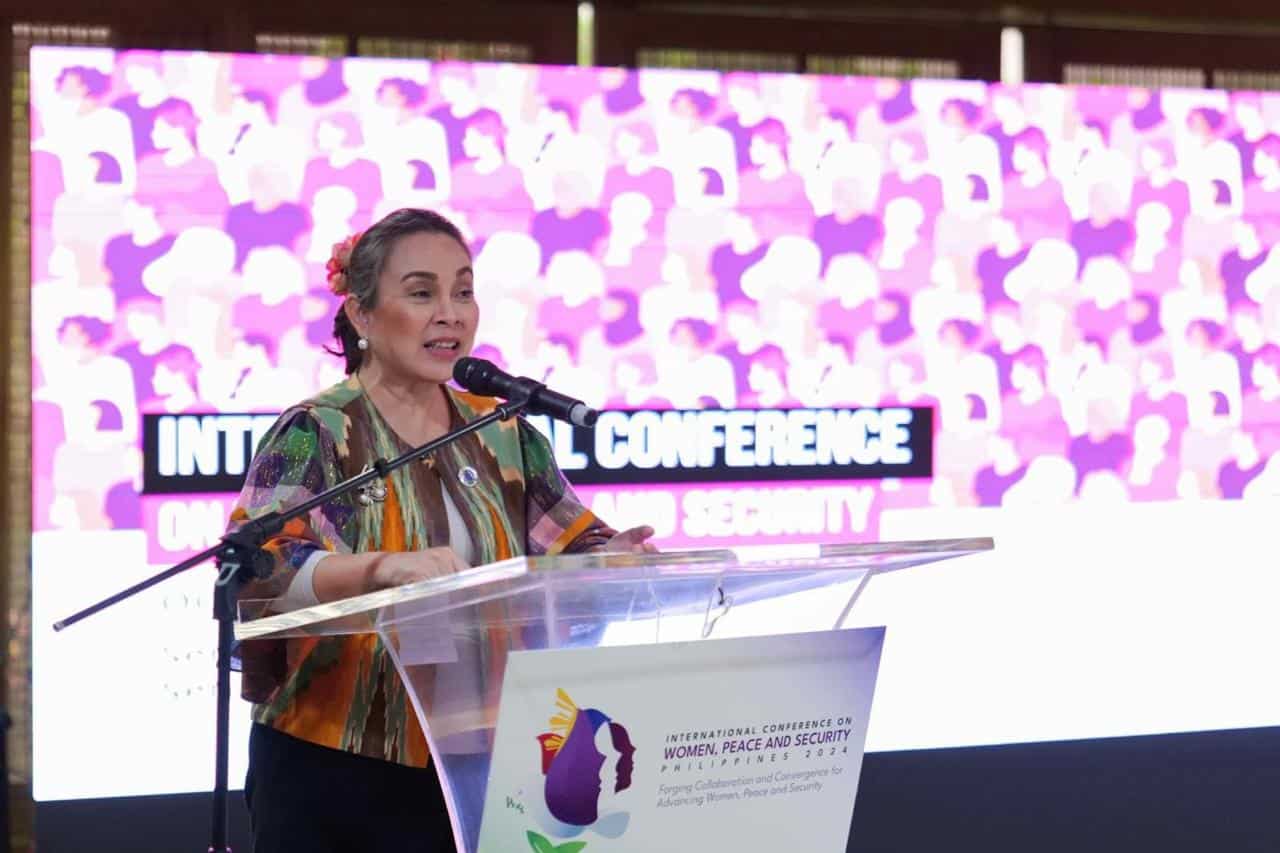
Senator Loren Legarda at the International Conference on Women, Peace, and Security (ICWPS)
Senator Loren Legarda championed the call for integrating Women, Peace, and Security (WPS) initiatives into national policies and budget frameworks at the International Conference on Women, Peace, and Security (ICWPS), held at the Philippine International Convention Center (PICC), Pasay City from October 28 to 30, 2024.
The event marks the upcoming 25th anniversary of United Nations Security Council Resolution 1325 next year, which highlights women’s roles in peacebuilding and security.
Legarda recalled that during last year’s Department of Foreign Affairs budget deliberations, she noticed that the request for initial seed capital for the ICWPS was listed merely as a side note and was not prioritized.
“Understanding its importance, I made it my own amendment to the national budget to ensure these remarkable women could come together,” Legarda shared. This initiative by the four-term laid the groundwork for a whole-of-government commitment to host the conference in the Philippines.
“That is the mark of a woman when the woman looks into the details and sees the import of things which are essential. Don’t they say that what is essential is often invisible to the eye? Well, I saw it amidst their pile of unrequested requests, unasked for because there was no remaining budget,” Legarda said.
During the roundtable discussion with other parliamentarians, Legarda addressed a critical question: “How can parliamentarians better advocate for the adoption, review, and implementation of National Action Plans on WPS?”
Senator Loren Legarda at the International Conference on Women, Peace, and Security (ICWPS)
Legarda identified two key responsibilities of the Senate. First, she emphasized the oversight role of Congress in ensuring laws are effectively funded and implemented, recognizing that many well-intentioned policies fall short in execution.
“Our role is not just policy-making but ensuring oversight on policies already enacted,” Legarda explained. “While we have enacted so many laws in many decades, some of these laws are unfunded or underfunded or perhaps even not effectively and efficiently implemented. The oversight function of Congress, and in this respect, the Philippine Senate, is very important. The oversight function, the relevance of laws already enacted, the nuances of revising or amending it based on societal changes and global challenges, that’s important.”
“Since 1998, I have seen laws with good intentions and funding, but why are people still poor, deprived, vulnerable and impoverished? Because the implementation is lacking. And this is not to cast aspersion on any administration or in any executive branch of government. It is just that we need to see the bigger and the minutest detail of the picture—in how we must pre-position goods, establish gender-responsive evacuation centers, ensure safe hospitals and schools, and in how women, peace, and security must be understood by every grade school child,” she said.
Second, Legarda highlighted the power of legislative and budgetary influence, advocating for WPS to be mainstreamed across the national budget and emphasizing that WPS initiatives should extend beyond the traditional 5 percent Gender and Development (GAD) allocation.
“For two, three decades ago, we have had the GAD, where 5 percent must be spent. I think that needs to be updated. Why only 5 percent? WPS must be mainstreamed in the 5 trillion national budget, just as climate change, adaptation, mitigation and resilience, and disaster risk reduction must be mainstreamed in the whole national budget. So must women, peace, and security are all cogs in a whole wheel that you cannot take out,” Legarda stressed.
“Yes, we need the policy. Yes, we perform oversight. Yes, we have the financing. But we must ensure that those who are implementing all the policies we do will implement it efficiently and effectively. We must have the tools to measure the impact if lives have improved well and by how many percent. It should not just be quantitative, but focused on the quality of life of Filipinos,” Legarda concluded.
READ: Loren Legarda first to file COC, gunning for a Senate comeback
Legarda’s support and participation in the ICWPS is a powerful reminder of the potential for policy-driven change in the lives of women and girls in communities. Her commitment to integrating WPS into national and legislative processes reflects her broader advocacy for peace, security, and inclusive governance, further establishing the Philippines as a global leader in advancing the WPS agenda.